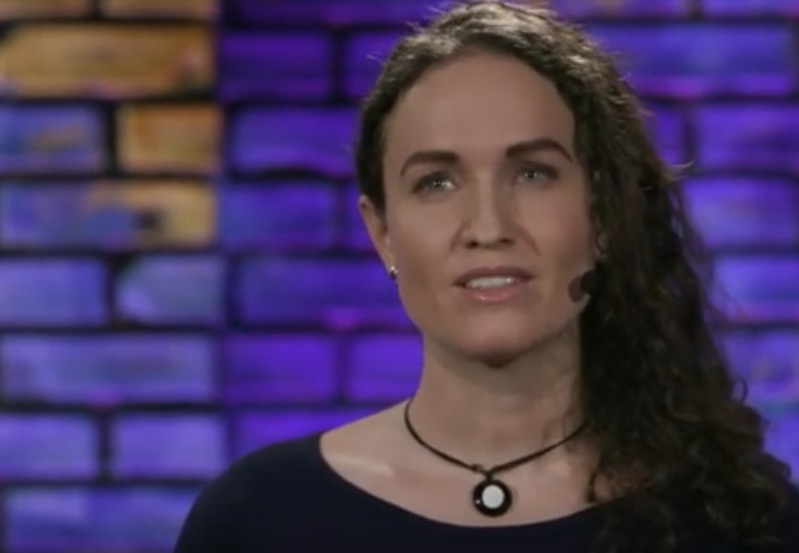Megan Phelps-Roper was once one of the most virulent and vocal ringleaders of Westboro Baptist Church, an anti-gay organization based in Topeka, Kansas, until “seeds of doubt” led her to abandon everything she had ever known.
Phelps-Roper, 31, recently shared her harrowing story in a TED talk, explaining that she decided to leave Westboro after years of encountering critics on social media who lovingly planted seeds of doubt in her mind — a move that came more than two decades after she first joined her family at the tender age of 5, picketing military funerals and other events across the nation.
“I’d stand on a street corner in the heavy Kansas humidity, surrounded by a few dozen relatives, with my tiny fists clutching a sign that I couldn’t read yet — ‘Gays Are Worthy of Death,'” she said, describing her first protests as a young child.
But while Phelps-Roper’s story of leaving it all behind is certainly intriguing and worthy of exploration, there’s another portion of her talk that hasn’t been given as much attention — and it involves the parallels she sees between Westboro’s staunch worldview, and the division that has been increasingly plaguing American culture.
Before delving into all that, Phelps-Roper explained how she and her fellow Westboro members — who are reportedly comprised mostly of Phelps family members — saw the world, noting that she and her 10 siblings were brought up to see everything boiled down to “an epic spiritual battle between good and evil.” Westboro purportedly thus sees itself as the only good in the world, creating the ultimate “us vs. them” paradigm.
“We were constantly at odds with the world and that reinforced our otherness on a daily basis,” she said, going on to discuss her picketing and virulent social media presence. “This was the only way for me to do good in a world that sits in Satan’s lap.”
Reflecting on this experience led Phelps-Roper to speak more broadly about where the U.S. is as a culture today, drawing some troubling parallels between her family’s beliefs and behavior, and the strife and division that’s been dividing Americans in half.
“We want good things … but the path we’ve chosen looks so much like the one I walked away from four years ago,” Phelps-Roper proclaimed. “We write off half the country as out-of-touch liberal elites or racist, misogynist bullies. No nuance, no complexity, no humanity.”
Citing her past experience with Westboro, she warned that this path looks all too familiar to her, and warned that if society continues on this journey, it “will not take us where we want to go” before encouraging her audience to talk with and listen to those they disagree with.
Phelps-Roper again reiterated that her experience leaving Westboro was precipitated by meeting critics online who engaged her in a calm and loving way. Based on their successful tactics, she offered up four steps in an effort to advise others to help create a less divisive climate when dealing with ideological opponents: “don’t assume bad intent,” “ask questions,” “stay calm” and “make the argument.”
She recalled the civil conversations she found herself having with various members of the public — conversations that would often start on Twitter and end up evolving into real-life friendships, as online critics would frequently attend her pickets and talk with her. Over time, these relationships caused her to question her own worldview.
“There was no confusion about our positions, but the line between friend and foe was becoming blurred,” Phelps-Roper said. “We had started to see each other as human beings and it changed the way we spoke to one another.”
Since leaving Westboro in 2012, Phelps-Roper has built an entirely new life, has married and is now speaking out about civility.
—
Other Must-Read Stories:
– Filmmaker Reveals Shocking Curveball He Encountered While Filming New Ebola Documentary
– Former Porn Star Finds Jesus, Abandons Adult Filmmaking — and There’s More…
– This NYC Pastor Has Helped Save 200 Captives in Northern Iraq



